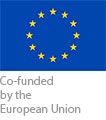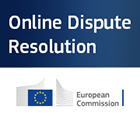Deception by phone
Scammers try to trap you in countless ways. Sometimes they even call you directly. They suggest a free trial package and conceal the subscription attached to it. Or they claim to work for a trusted organisation and then steal your bank details.
The golden rule? Never give out your bank details or PIN over the phone. Subscribe to the Do Not Call Me list (French and Dutch) if you don’t want to receive unwanted commercial phone calls and if you find you’ve been scammed, file a complaint via the platform ConsumerConnect.
To better protect you against this type of scam, here are some common scenarios.
- A vendor calls you and makes you an attractive offer: you get a free sample pack as a gift or can place an order at a discount. You aren’t interested, but since you don’t want to appear rude, you agree that the seller can send you some information via email. You receive the email, but it states that you’ve just taken out a new subscription.
- You receive an alarming phone call from Microsoft. A technician has determined that a virus has infiltrated your computer. Fortunately, the caller can fix it for you right away. They send you a link to open as soon as possible, after which the caller logs on to your computer and browses your files and even bank account.
- Someone posing as an employee from the European Consumer Centre Belgium calls you. It turns out you’re entitled to a refund. You can receive it immediately, if you provide your account number and PIN via your card reader. The only thing is, ECC Belgium has nothing to do with this call and the scammer runs off with your money. This practice is called spoofing.


